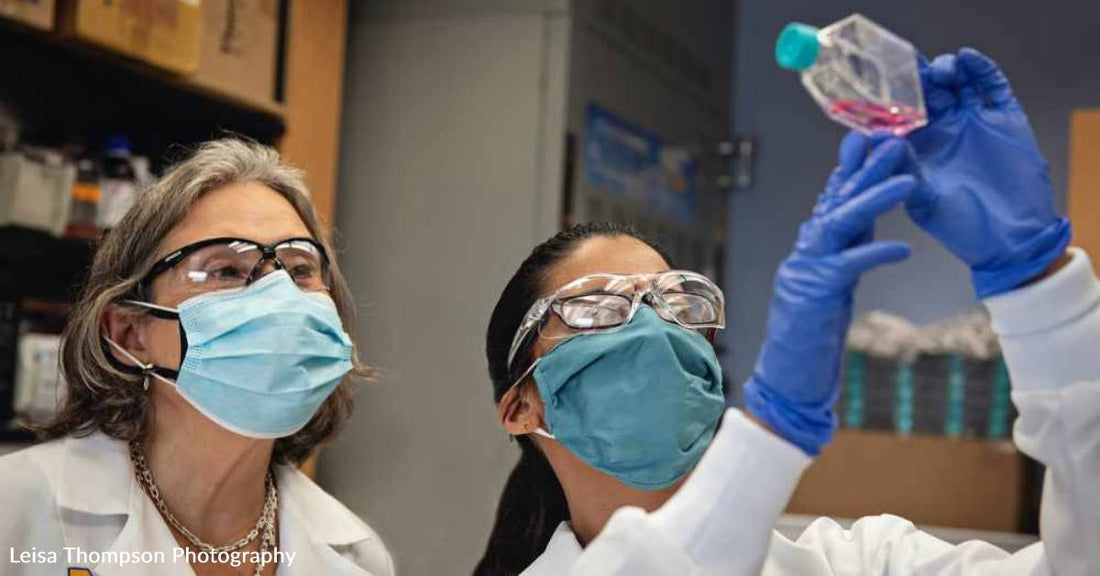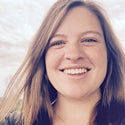GreaterGood’s Funding Is Changing the Face of Tumor Metastasis Research
Elizabeth Morey
Since 1999, GreaterGood has been working to create easy ways for changemakers like you to make an impact, both in local communities and around the globe. In that time, we’ve raised more than $75 million dollars for a wide variety of charitable causes that provide aid to people, pets, and our beautiful planet.
Through shopping, daily free clicks, donations, and more, we’ve worked together to change the world one click at a time! And we can’t tell you enough how much we appreciate your support! Thank you for helping us reach this important milestone of $75 million raised for charity! Read on to learn more about one of the many ways you’ve helped us give where it matters.
GreaterGood is proud to have an ongoing fund that supports a breast cancer research chair at the University of Michigan. In doing so, we’ve provided the money needed for Dr. Sofía Merajver, M.D., Ph.D., of the University of Michigan, and her team to change the face of breast cancer research and save lives!
 PHOTO CREDIT: LEISA THOMPSON PHOTOGRAPHY
PHOTO CREDIT: LEISA THOMPSON PHOTOGRAPHYDr. Merajver grew up in Buenos Aires, Argentina. Her family had no TV and no car, but still, she says, she was surrounded by books and led an exciting life of curiosity.
When she was five years old, Dr. Merajver’s family took her to say goodbye to her uncle, who was dying of an unknown respiratory disease. She was determined to figure out what was wrong with him, so she began asking him questions. He had a high fever and told her that it hurt to breathe, and she asked whether it hurt while he breathed in or out. He said it hurt at the very end of the breath in just one spot, and Dr. Merajver decided that it must be an infection of the diaphragm, which she promptly told the doctors. She didn’t know the word for “abscess” at the time, but she described it as a ball in the diaphragm, and the doctors immediately knew what she was talking about.
“They opened him up and took it out, and he lived for another 40 years,” she recalls. “That week, I decided I was going to be a scientist.”
 PHOTO CREDIT: LEISA THOMPSON PHOTOGRAPHY
PHOTO CREDIT: LEISA THOMPSON PHOTOGRAPHYLater, when she was 15, Dr. Merajver also treated her father, who smoked and was dying of lung cancer. At the time, there were no real opportunities for treatment, but there was a clinical trial being conducted, and researchers in Buenos Aires were participating. After reading about the trial, Dr. Merajver went to the institute and asked if her father could come to be treated there. They couldn’t let him into the trial, but they happened to have some leftover drugs that weren’t expired, and they agreed to give them to Dr. Merajver.
“I borrowed a glass syringe that my mother boiled in the kitchen, and I gave my dad chemotherapy,” says Dr. Merajver. “And he responded pretty well, I would think. He lived another six months. He had the worst location for lung cancer; I knew he didn’t have long at all. Just weeks, really.”
Dr. Merajver left Argentina and came to the United States to get her Ph.D. in physics and went to medical school at the University of Michigan. She is now a professor of international medicine and epidemiology, a Rogel Scholar, and the director of the Breast and Ovarian Cancer Risk Evaluation Program at the University of Michigan.
 PHOTO CREDIT: LEISA THOMPSON PHOTOGRAPHY
PHOTO CREDIT: LEISA THOMPSON PHOTOGRAPHYAmong other projects, Dr. Merajver and her team use multidisciplinary strategies to combat breast cancer metastases in the brain, which is the most lethal complication of cancer disease progression. They work both in the lab and directly with patients, using their findings in each setting to inform their decisions in the other.
The team takes tumors directly from surgery to the lab, where they slice them up, isolate the cancer cells, and analyze them against a database of cancer medications to determine which drugs are most likely to be effective.
“Now this person doesn’t have years of her life to be receiving drugs that don’t work,” Dr. Merajver says about a particular tissue sample from a metastatic breast cancer patient. “They should receive only the drugs that have a good chance of working. The reality is that most of the drugs are going to be ineffective, but we can tell which ones will be effective.”
 PHOTO CREDIT: LEISA THOMPSON PHOTOGRAPHY
PHOTO CREDIT: LEISA THOMPSON PHOTOGRAPHYThe process usually takes just a few days, and then they’re able to get a treatment plan into place quickly for their patients. With metastatic cancer, time is of the essence, so it’s imperative that the information be relayed as quickly as possible.
Dr. Merajver’s team is one of the few working on brain metastasis projects, and they have the largest collection in the world of brain metastasis samples. They’re also the only team on the planet that can currently get this information synthesized in such a short period of time so that patients can get the right treatment as quickly as possible.
Someone is always available, 24 hours a day, seven days a week, so that whenever a cancerous tissue is extracted from a patient, it can be collected and analyzed in the lab. “We never miss a tissue,” says Dr. Merajver.
 PHOTO CREDIT: LEISA THOMPSON PHOTOGRAPHY
PHOTO CREDIT: LEISA THOMPSON PHOTOGRAPHYDr. Merajver believes her team has a very good chance of stabilizing the survival curves that currently exist for metastatic patients and pushing out the expected survival time by several years. This is extra important for young cancer patients whose lifespans would be cut short by several decades without proper treatment.
However, even with such a vital research project, it has proven difficult to get funding. For five years, the project has only moved forward with the help of philanthropy. Now with GreaterGood and donors like you backing her work, Dr. Merajver will be able to help so many more people and continue to make breakthroughs in cancer research.
“Every dollar is used for research—basically nothing else,” says Dr. Merajver.
GreaterGood would like to thank Dr. Merajver, as well as her team. Their hard work is changing the world one cancer case at a time.
 PHOTO CREDIT: LEISA THOMPSON PHOTOGRAPHY
PHOTO CREDIT: LEISA THOMPSON PHOTOGRAPHY“What you [GreaterGood and donors] are doing is really helping save lives while nurturing the career of [these] wonderful people,” says Dr. Merajver. “I would get very little done if I were doing it myself.”
By funding this chair for breast cancer research position, GreaterGood aims to create opportunities for innovation in the field of cancer research and to make a significant impact on those affected by cancer for years to come. We’re honored to be able to support this vital work, and we appreciate your contributions!
Thank you so much for helping us reach the $75 million dollar mark so that we can continue to fund amazing projects that make our world a better place! Your donations do not go unnoticed!
Want to know more about all the ways we're supporting causes you care about? Learn more here.



